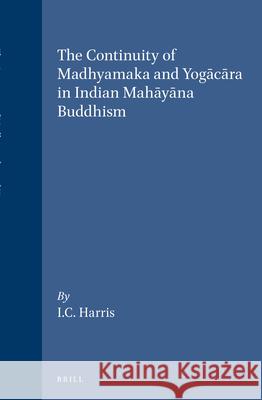The Continuity of Madhyamaka and Yogācāra in Indian Mahāyāna Buddhism » książka
The Continuity of Madhyamaka and Yogācāra in Indian Mahāyāna Buddhism
ISBN-13: 9789004094482 / Angielski / Twarda / 1991 / 194 str.
In the past European scholars have tended to treat both Madhyamaka and Yogācāra as separate and fundamentally opposed trends in Mahāyāna Buddhist thought. Drawing heavily on early textual evidence this work questions the validity of such a "Mahāyāna schools" hypothesis. By down-playing the late commentorial traditions, the author attempts a general reappraisal of the epistemological and ontological writings of Nagarjuna, Asanga and Vasubandhu. He concludes that the overlap in all areas of doctrine is significant, but particularly with respect to the teachings on the levels of truth, the enlightened and unenlightened states, the status of language and the nature of reality. It is hoped that such investigations may provide the basis for a new theory on the proliferation of Indian Mahāyāna Buddhism as an organic process of assimilation to new audiences, and specific contemporary problems, rather than in the more schismatic manner favoured by past researchers.











